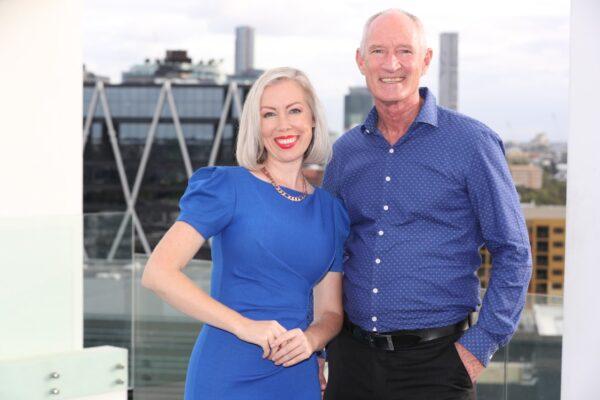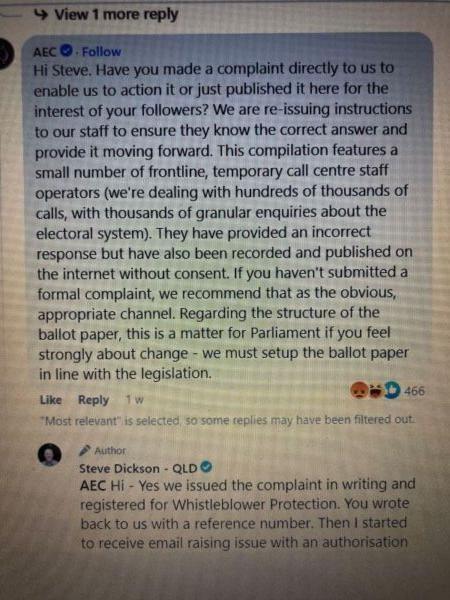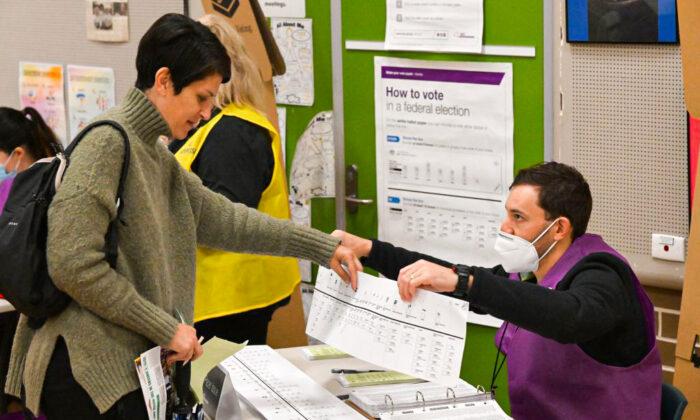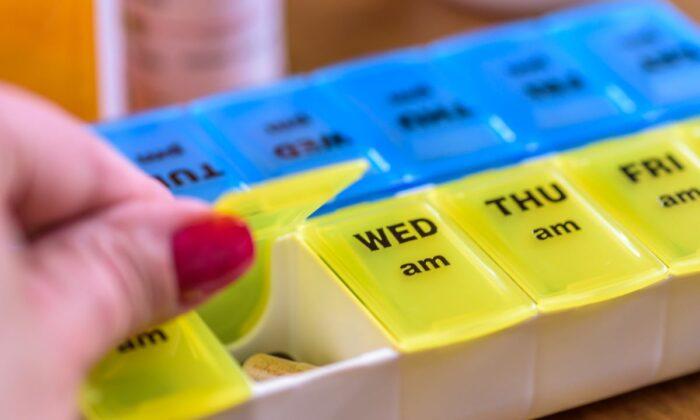Independent senate candidates in two states have alleged that the Australian Electoral Commission (AEC) staff gave voters incorrect information on how to vote on the senate ballot paper during Australia’s recent federal election.
The independents alleged that AEC staff told voters not to number unnamed boxes above the line, even though those boxes represented independent candidates, which has cost them a significant percentage of votes.
However, the Australia Electoral Commission (AEC) stated that it had re-issued instructions to staff after an initial complaint to ensure they understood what the unnamed boxes meant.
Independent Senate candidates Steve Dickson and Rebecca Lloyd from Queensland and Morgan C. Jonas from Victoria said they were contacted by pre-poll voters who they allege were told by AEC staff not to number the boxes that had only a letter above the box, but no party name, as those votes wouldn’t count in the election.
Below the line, all candidate names appear, whereas above the line, only party names do, meaning independents can’t have their name put there and are instead labelled as “Independent” if running alone or represented by a letter of the alphabet—“H” in Dickson’s case—if grouped with another independent.

“I started to receive messages from people who were voting at the pre-polling and being told they could not put a number in column H,” Dickson told The Epoch Times.
Dickson said he then called the AEC himself to ask if he could vote in the column that was empty other than having the letter H above the box and was told that he couldn’t.
“I made ten further phone calls and was told a variety of reasons why I should not number the box H above the line. I recorded these calls,” he said.
Then on May 16, Dickson lodged a complaint with the Australian Human Rights Commission for discrimination and directly to the AEC about the incorrect information being given out to voters.
The AEC responded to that complaint on the same day and provided him with a complaint reference number.
On May 18, not having received any further response to his complaint, Dickson said he decided to post a video on his Facebook page sharing what was happening and included some of the phone calls of AEC staff allegedly giving voters the wrong information.
On the same day, the AEC posted a comment on his Facebook page under the video confirming the callers were given an incorrect response by staff at the AEC.
“We are re-issuing instructions to our staff to ensure they know the correct answer and provide it moving forward,” the comment reads.
“This compilation features a small number of frontline temporary call centre operators. They have provided an incorrect response that have also been recorded and published on the internet without consent.”
The AEC also noted in their commentary on the Facebook page that the recordings were published without the consent of the AEC staff who were recorded.
According to the Queensland privacy laws, while it is not illegal to record a conversation you’re involved in over the phone or face-to-face without the consent of the other people involved in the conversation, there are restrictions on how that recording can be used and disseminated.

However, Dickson argues that voters were still being given incorrect information regarding the senate ballot paper after May 18, including on May 21, election day.
On May 20, Dickson said he posted a link online for people to upload any evidence of them being directed not to vote in the lettered boxes, and he received an overwhelming response.
“ The Steve Dickson Facebook Page now has hundreds of people offering to provide statements of what occurred when they went to vote. This included videos and audio recordings of AEC staff telling voters that they cannot vote for the Independents who are listed as a letter above the line,” he said.
The Disinformation Register then explains that a blank column indicates that these independent candidates have chosen to be grouped together with other independents on the ballot paper, as compared to a single independent, who would have “Independent” printed next to their name.
Grouped independents in blank columns are still legitimate independent candidates for the election, and the AEC said: “There is no evidence of AEC staff telling pre-poll voters that these independent candidates have withdrawn.”
The AEC told the Epoch Times via email that when the entry went into the disinformation register there had been no evidence of AEC staff telling voters that information, but that “we are updating this as we speak,” the spokesperson said.
The AEC spokesperson also confirmed that instructions were re-issued verbally to all staff taking calls or issuing ballot papers once the AEC was aware of the incorrect information being told to voters.
“We have 105,000 temporary staff (many employed for a single day) that do a brilliant job of administering the Federal Election and providing guidance to voters,” AEC said in a statement.
“A small number of individual accounts are not representative of instructions provided across an operation of more than 8,000 voting venues and millions of individual interactions, including hundreds of thousands of public enquiries.”
However, Dickson, Lloyd, and Jonas are not convinced that it is just a small number due to the considerable difference between the percentage of independent votes in the House of Representatives compared to the Senate.
The Labor Party, for example, currently has 32.76 percent of the national votes in the House of Representatives and 30.38 percent in the Senate, a difference of 2.8 percent.
The Greens have an even more minor percentage difference in terms of national votes between the lower and the upper house, 11.86 and 12.37 percent, respectively, a variance of 0.51 percent.
Similarly, One Nation shows a minimal difference between the two houses—4.88 percent in the lower versus 4.25 percent in the upper house, a variance of 0.63 percent.
However, with 5.35 percent of national votes in the House of Representatives to date, but just 0.85 percent in the Senate, independents are seeing a variance of 4.5 percent, which Dickson believes may be attributable to the incorrect information given to voters voting above the line on the Senate ballot paper.
“So somewhere, roughly 5 percent of the vote has just gone up in smoke. It’s just vanished,” Dickson said on social media on May 27, when the gap was slightly larger.
“All people deserve to be told the correct information. All people deserve their vote to count. If this has not occurred, they deserve to know how and why.”
Dickson, Lloyd and Jonas are calling for an inquiry into what took place.





